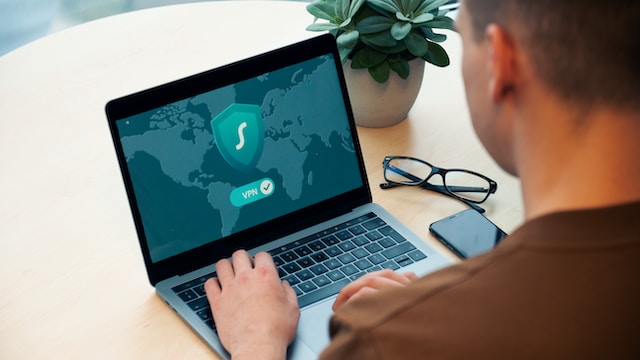In today’s digital age where our lives are increasingly intertwined with the online world protecting our personal information and ensuring cybersecurity has become more critical than ever. This article aims to provide you with essential tips and best practices to safeguard your sensitive data and maintain online privacy. By implementing these strategies you can minimize the risk of cyber threats and protect yourself in the digital realm.
Keep Your Devices Secure
One of the fundamental steps in maintaining cybersecurity is to ensure the security of your devices. Keep your operating systems antivirus software and other applications up to date with the latest security patches and updates. Enable automatic updates whenever possible to ensure you have the most current protection against emerging threats. Additionally use strong unique passwords for all your accounts and consider utilizing a password manager to securely store and generate complex passwords.
Be Cautious with Emails and Phishing Attacks
Phishing attacks are a common method used by cybercriminals to deceive individuals into revealing sensitive information. Be cautious when opening emails especially those from unknown senders or with suspicious attachments or links. Avoid clicking on suspicious links as they may lead to fake websites designed to steal your personal information. Always verify the legitimacy of emails or requests asking for sensitive data and remember that legitimate organizations will never ask for passwords or sensitive information via email.
Secure Your Online Accounts
Ensure the security of your online accounts by using strong unique passwords and enabling multi-factor authentication (MFA) whenever possible. MFA adds an extra layer of security by requiring a secondary form of verification such as a fingerprint or a unique code sent to your mobile device in addition to your password. This significantly reduces the risk of unauthorized access to your accounts even if your password is compromised.
Practice Safe Browsing Habits
When browsing the internet be mindful of the websites you visit and the links you click on. Stick to reputable websites with secure connections (look for “https” and a padlock icon in the address bar) when entering sensitive information such as passwords or credit card details. Avoid downloading files or software from untrusted sources as they may contain malware or viruses that can compromise your system’s security.
Be Mindful of Social Media Privacy
Social media platforms play a significant role in our lives but they also present potential risks to our privacy and security. Review and adjust the privacy settings of your social media accounts to control who can see your posts and personal information. Be cautious about sharing sensitive information publicly such as your full address phone number or financial details. Remember that anything you post online can potentially be accessed or used by others so exercise discretion and think before you share.
Regularly Back Up Your Data
Backing up your data regularly is an essential practice in maintaining cybersecurity. In the event of a cyberattack or system failure having a recent backup of your important files ensures that you can restore your data without significant loss. Utilize external hard drives cloud storage services or automated backup solutions to protect your valuable information from accidental deletion hardware failure or ransomware attacks.
Educate Yourself and Stay Informed
Cybersecurity threats evolve constantly so it is crucial to stay informed about the latest trends risks and preventive measures. Stay updated with reputable sources of cybersecurity news and resources such as technology blogs security websites and official announcements from trusted organizations. Educate yourself about common types of cyber threats such as phishing malware and social engineering to recognize and avoid potential risks.
Use Secure Wi-Fi Networks
When connecting to public Wi-Fi networks exercise caution as these networks can be vulnerable to hackers. Avoid accessing or transmitting sensitive information such as passwords or financial data when connected to public Wi-Fi. If you need to perform sensitive tasks online consider using a virtual private network (VPN) to encrypt your connection and protect your data from potential eavesdropping.
Keep a Watchful Eye on Financial Transactions
Regularly monitor your financial accounts and transactions for any suspicious activity. Set up transaction alerts with your bank or credit card company to receive notifications of any unusual or unauthorized transactions. Report any unauthorized activity immediately to your financial institution and take necessary steps to protect your accounts from further compromise.
Stay Vigilant and Be Proactive
Maintaining cybersecurity requires constant vigilance and a proactive approach. Regularly review your privacy settings update your passwords and be cautious with your online activities. Stay informed about emerging threats and best practices and encourage your friends and family to follow cybersecurity measures as well. By adopting a proactive mindset and implementing these tips you can enhance your cybersecurity posture and protect your personal information online.
Remember cybersecurity is a continuous effort and by staying diligent you can significantly reduce the risk of falling victim to cyber threats and maintain a safe online presence. Stay informed stay cautious and stay secure in the digital world!

Hi, I’m Jodie! I’m a spain-Moroccan writer with a passion for imagination, adventures, magic and stories with heart.
Please don’t hesitate to contact me for any questions, suggestions, comments or feedback.

















Add comment